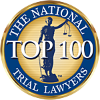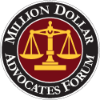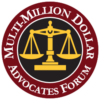Do you suspect upcoding fraud?
Upcoding scams divert millions of dollars from those who need it most.
I suspect upcoding fraud – Let’s chat
100% free & confidential
Upcoding scams divert millions of dollars from those who need it most.
I suspect upcoding fraud – Let’s chat
The government has a massive stake in healthcare. Programs like Medicare, Medicaid, and TRICARE provide care to millions. In 2021, for example, the Department of Justice recovered about $5.6 billion in settlements and judgments involving false claims and fraud. More than $5 billion of that total involved healthcare sector entities.
Every procedure performed by a doctor, nurse, or other healthcare provider is associated with a five-digit alphanumeric “Current Procedural Terminology code” (“CPT code”) assigned by the American Medical Association. It also includes the National Provider Identifier (“NPI”) code of the physician who provided the treatment or, if no physician was involved, the NPI of the nurse practitioner (NP) or physician’s assistant (PA) who did so. The NPI is a 10-digit number unique to a single practitioner.
When a hospital or medical practice submits a reimbursement request to Medicare or a state’s Medicaid plan, it includes the CPT code(s) for the treatment the patient received. The CPT code for a more complex procedure is associated with a higher reimbursement rate than the CPT code for a simpler procedure. The same is true of a physician’s NPI code compared to the code of a physician’s assistant, with the physician’s services being reimbursed at a higher rate than those of other providers.
“Upcoding” – or simply “miscoding” – is a common class of fraud in insurance reimbursement claims by healthcare providers. Upcoding affects both private insurers and government health insurance programs such as Medicare, Medicaid, and TRICARE. Where one of those federal programs is overcharged, the False Claims Act (FCA) allows the U.S. government civil penalties of $12,537 to $25,076 for each instance of false billing plus three times the amount of the total overcharging. A whistleblower can file a “qui tam” lawsuit on the government’s behalf and, if successful, is entitled to up to 30% of the government’s recovery.
Three of the most common examples of upcoding schemes are:
An unscrupulous medical practice may enter a physician’s NPI code as if the doctor has seen the patient, when in fact a nurse practitioner or physician assistant saw the patient without a physician, because insurers typically reimburse a physician encounter at a higher rate than an encounter with other medical staff.
When a procedure, diagnosis, or visit can be done by an NP or a PA, he or she is typically only allowed to bill Medicare at just 85% of the rate of a physician. In some circumstances, an NP or PA may bill a patient visit at the full physician’s rate; however, federal healthcare programs only allow this in very specific circumstances. For example, the physician must be physically present in the same suite for immediate consultation.
When the physician is not in such close proximity, billing at the full rate for services by a nurse practitioner or physician’s assistant is a type of upcoding that violates Medicare billing guidelines and the False Claims Act.
In a classic miscoding case, Bill Nettles and Fran Trapp helped win $22.5 million from South Carolina’s largest urgent care provider.4 The provider and its management company were alleged to have improperly billed Medicare, Medicaid, and TRICARE for services rendered by physicians without the proper billing credentials. The care provided in the case was not compromised – the company simply did not complete the required credential for some of its physicians and, rather than find a temporary solution, chose to bill uncredentialed physicians as credentialed.
Upcoding frequently involves the wrong CPT code. A simple example: A patient’s five-minute visit with a nurse practitioner or physician’s assistant with no other treatment, tests, or diagnoses should be coded as “99211”, according to AMA and Medicare/Medicaid guidelines. An established patient’s fifteen-minute visit with a physician is coded as “99212.” If a physician’s assistant sees a patient for five minutes without discussing the patient’s medical history, and the office manager sends the patient’s insurer a request for reimbursement with the code “99212,” then that is an example of upcoding and possible fraud.
But FCA cases often involve much more technical distinctions. In one case, a federal court held a diagnostic clinic liable in March 2020 for repeatedly upcoding a procedure used to diagnose glaucoma, a buildup of fluid in the eye that puts pressure on the optic nerve and causes temporary and sometimes permanent blindness.3
The clinic diagnosed glaucoma via “tonometry,” a procedure that measures the pressure of fluid in the eye, which carries the CPT code “92100.” But the clinic regularly billed Medicare for a more expensive procedure called “tonography,” CPT code “92120,” which measures the rate at which fluid leaves the eye when the eye is pressed. The distinction between the two can come down to where pressure is being measured and how, so it isn’t hard to see how medical professionals might disagree with one another.
But the whistleblower in that case, a doctor for the clinic, had shown its medical director formal opinions from the American Optometric Association and American Academy of Ophthalmology, which agreed that the clinic’s procedure qualified as the less-expensive tonometry, and yet the clinic persisted in billing for the more-expensive tonography.
Another common scheme for overcharging insurers is “unbundling.” Some procedures with multiple components are “bundled” together and assigned a single CPT code. The rates that Medicare and many private insurance companies have agreed to pay for that procedure are typically lower than the sum of the rates when the components are billed with separate CPT codes as multiple procedures.
Billing the insurer for the components as multiple procedures is known as “unbundling” and can be a violation of the FCA.
Medical billing fraud can be reported in a variety of ways. Where the insurer being defrauded is a federal program such as Medicare, Medicaid, or TRICARE, the FCA allows a whistleblower to sue on the government’s behalf.
A whistleblower lawsuit must be filed “under seal;” it does not immediately become public. Federal and/or state attorneys investigate the allegations. The defendant is not notified or required to respond during this time. For Medicaid, a joint federal-state program, the whistleblower may be able to sue on behalf of both the United States and the relevant state.
You can report health insurance fraud on your own, but there are many reasons to engage an attorney. An experienced qui tam attorney can help try to persuade federal and/or state attorneys to bring in the government as an active party, which increases the lawsuit’s chance of success. Not only can we help you with your claim, we can work to try to ensure you receive the maximum possible protection from retaliation under the law.
An experienced qui tam attorney can also help you investigate the fraud so that an FCA lawsuit you file contains the right type of information and gives proper notice to the relevant government agency. These steps are crucial to ensuring that you are compensated for your efforts and the risk you take by speaking up, if the lawsuit is successful.
PRO TIP: Anyone can report fraud, but that may prevent you from pursuing a whistleblower case. You want a lawyer to effectively work your case, fight for your protection from retaliation, try to limit your legal liability, and eventually seek a maximum award if the case is successful.
Whistleblowers in the industry – including doctors, nurses, billing professionals, and contractors – initiate most of the qui tam lawsuits that expose upcoding fraud against federal and state governments. We have experience pursuing cases involving all manners of healthcare fraud, and have helped whistleblowers return millions of dollars to taxpayers.1
Please contact us if you have seen evidence of this type of fraud against the federal or state government. We appreciate the struggle you may be facing. We are discreet and our You-First Policy helps keep you safely out of the spotlight as much as possible. We also help you try to take advantage of appropriate federal and state law that protects you from employer retaliation and – if you were involved in your employer’s fraud – may also protect you.
Contact us or call 1-888-292-8852.
If we decide to take your case and you don’t get a reward for reporting fraud, you owe us nothing.2
“Bill has the ability to ‘think outside the box’…which makes him extremely effective as an advocate for his clients.” 1 — Attorney who previously worked with Bill






If you’re wondering if it’s a good idea to speak with a whistleblower lawyer about what you know, let us set the record straight.
"*" indicates required fields